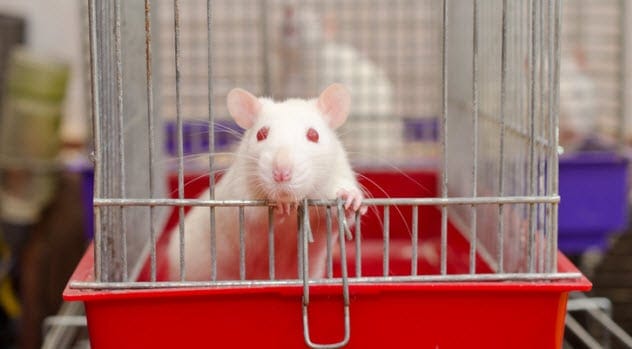We all have certain beliefs we consider to be true. But what if some of those beliefs were actually false? Researchers are constantly conducting studies that challenge our assumptions and sometimes, they turn our world upside down. In this article, we’ll explore ten studies that contradict common things we believe.
It’s important to remember that not all studies are created equal. Some are funded by companies who might benefit from certain results, so it’s always good to approach these findings with a healthy dose of skepticism.
Drugs Aren’t Addictive?

In 1979, Bruce Alexander of Simon Fraser University conducted the Rat Park study. He wanted to prove that addiction isn’t just about the drugs themselves, but also about the environment someone is in. He put rats in two different cages: one where they could socialize and another where they were isolated. Both groups had access to morphine-laced water.
The results? The isolated rats consumed seven times more morphine than the social rats. Alexander concluded that loneliness and the environment play a big role in drug addiction. This study was controversial and faced criticism, and follow-up studies have had mixed results.
Diet Soda Beats Water?

Believe it or not, a study published in the International Journal of Obesity suggested that diet soda is healthier than water. Researchers at the University of Bristol claimed that the low-energy sweeteners in diet soda led to less body weight and energy intake compared to drinking water.
However, this study faced heavy criticism because it was indirectly sponsored by the soda industry. The International Life Sciences Institute (ILSI), which includes doctors from companies like Pepsi and Coca-Cola on its board, funded the research. Critics also pointed out that the study only focused on a few papers, some of which had ties to the soda industry.
Laughter is Deadly?

We’ve all heard that laughter is the best medicine, but research from the University of Birmingham suggests it could also be dangerous. Professor R.E. Ferner and J.K. Aronson analyzed thousands of studies on laughter.
Their findings indicated that while laughter can be healthy, it could also cause issues like abdominal hernia, jaw dislocation, and even fainting. In extreme cases, laughter was linked to Boerhaave’s syndrome, a rare condition involving a rupture of the esophagus. However, the researchers also noted that laughter has benefits, so it’s all about moderation.
Alcohol > Exercise? Cheers, Seniors!

Researchers at the University of California found that senior citizens over 90 years old lived longer if they regularly drank beer and wine. Their study, called 90+, involved visiting over 1,600 seniors to gather data on their habits.
The study revealed that seniors who consumed one glass of wine or two glasses of beer a day were 18% less likely to die than those who didn’t. Exercise, on the other hand, only reduced the risk of death by 11%. The seniors with the best survival rates exercised, drank wine and coffee, and were slightly overweight.
Exercise: The Silent Killer?

According to the journal Alimentary Pharmacology and Therapeutics, excessive exercise can be bad for your health. The journal reported that exercising for more than two hours a day could lead to various disorders, including leaky gut syndrome, where toxins leak into the blood.
Too much exercise can also weaken the heart muscle, cause abnormal heart rhythms, and trigger the release of cortisol, a stress hormone. These effects can weaken the immune system, reduce bone density, and lead to overtraining syndrome, which mimics the symptoms of clinical depression.
Lying is Caring?

A study from the Wharton School of the University of Pennsylvania suggests that lying can sometimes be a good thing. Researchers Emma Levine and Maurice Schweitzer found that people consider it acceptable to lie to prevent someone from feeling bad. For example, telling a friend their artwork is amazing, even if it isn’t, is considered a good lie.
Participants in the study agreed that lies designed to protect someone’s feelings were good, while lies that caused harm or had no effect were bad.
Note-Taking = Forgetting?

Michelle Eskritt and Sierra Ma of Mount St. Vincent University found that taking notes can make us more forgetful. Their study indicates that our brains may not store information as effectively when we know we’ve written it down.
In their experiment, participants who took notes during a memory game recalled less information than those who didn’t. The study suggests that learning and remembering are two separate processes, and relying too much on notes can hinder our ability to remember.
Junk Food Doesn’t Cause Obesity?

Professors David Just and Brian Wansink of Cornell University challenged the common belief that junk food and soda are primary causes of obesity. They analyzed the eating habits of 5,000 Americans and found that 95% of people with a normal weight didn’t become obese from eating junk food or drinking soda.
They also found that normal weight and obese people consumed roughly the same amount of junk food. The researchers suggested that obesity is more related to the total number of calories consumed rather than the specific type of food. However, this study has faced criticism for not considering the exact types and quantities of junk food and soda consumed.
Showers Are Bad for You?

Research from the Genetic Science Center of the University of Utah suggests that showering too much can be harmful. While showering is important for hygiene, overdoing it can kill beneficial bacteria and viruses that live on our bodies, making us less resistant to diseases.
A study of indigenous people in the Amazon found that they had a more diverse range of bacteria on their skin compared to Westerners. The researchers believe that excessive showering affects our microbiome, though they didn’t specify how often we should shower.
Talk to Yourself, Genius!

Researchers at Bangor University found that talking to yourself, especially out loud might be a sign of higher intelligence. Psychologist Dr. Paloma Mari-Beffa stated that this behavior helps us think, plan, and focus better. It can also boost our motivation when stressed.
The researchers gave participants written instructions to read silently or aloud, then assigned them tasks. Those who read aloud performed better. Earlier studies support these findings, suggesting that talking to yourself can improve task execution and help you find things faster.
Wrapping Up
These studies serve as a reminder to question everything and stay curious. Science is constantly evolving and challenging our preconceived notions. Who knows what other common beliefs will be debunked in the future?
What do you think about these surprising findings? Share your thoughts in the comments below!










